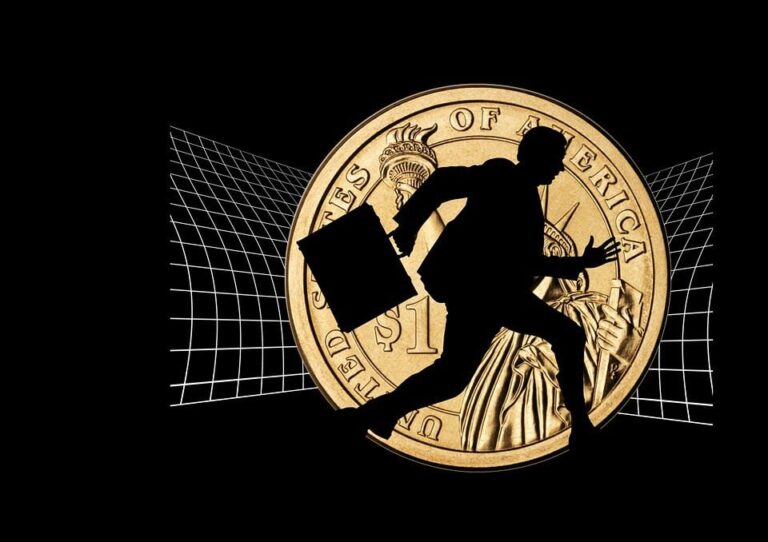A Closer Look at Cryptocurrencies and Their Tax Implications
Are you among the 36.5 million Americans who own cryptocurrency? If so, you might be interested to know that the IRS recently updated the tax guidelines for all cryptocurrencies, including Bitcoin (BTC), Bitcoin Cash, Litecoin and Ethereum.
The number of Americans who owns cryptocurrency nearly doubled in 2019, from 7.95% of the population in 2018 to 14.4% of the population in 2019. This number is expected to rise still further, with 15-20% of the population planning to invest in cryptocurrency in the near future. Is cryptocurrency a good investment? A tax shelter? The wave of the future? This article will answer some basic questions for the savvy investor.
What is cryptocurrency?
In non-technical language, cryptocurrency is defined as online or virtual money. It functions like ordinary money in that it can be traded for other services or saved for a rainy day. Unlike traditional money, it cannot be printed or touched. The lion’s share of cryptocurrency is currently in a currency called Bitcoin (BTC). There are other cryptocurrencies besides Bitcoin, but they are not considered mainstream at the current time.
Isn’t cryptocurrency just used in the gaming community?
No. It makes sense that gamers would gravitate toward cryptocurrency, and many online gaming platforms are friendly to its use. A (very) few major retailers are beginning to accept Bitcoin for online purchases. Bitcoin has also been used with limited success in countries like Venezuela and Syria, where the national currency was severely compromised. Although Bitcoin is poised for more everyday uses, most Bitcoin now is held by two groups: 1) long-term investors seeking to diversify their assets, and 2) short-term speculative investors seeking to make a quick profit.
Can cryptocurrency be converted to dollars?
Yes. Picture the money exchange booths in an international airport. At these booths, you can turn in currency from one country and, for a fee, exchange it for a different country’s currency. Similarly, online bitcoin marketplace services will exchange bitcoin to U.S. dollars and vice versa.
Is Bitcoin the same thing as PayPal?
No. Confusing Bitcoin with PayPal is a common misconception. PayPal functions with traditional currency, using an online platform to transfer it between people and companies. It transfers money digitally, but the money transferred is not a new kind of currency – it is still U.S. dollars. Although PayPal is not the same thing as Bitcoin, and PayPal is not considered a Bitcoin marketplace, you can use PayPal to buy Bitcoin, and you can transfer Bitcoin to a Paypal account.
Is cryptocurrency a good investment?
Cryptocurrency investment is considered risky. Like other high-risk investments, it tantalizes with the possibility of high returns. Investing in cryptocurrency is like investing money in a new country or an emerging market. Consumer Reports ranks cryptocurrency as a high-risk investment because of the volatile swings it has experienced in the past. The currency is so new that the return on investment is impossible to predict. Still, cryptocurrency is considered a hot commodity by many investors who are willing to go into the digital ‘wild frontier’ for the possibility of high returns.
Is cryptocurrency considered a tax shelter?
No. Although cryptocurrencies present regulators with significant challenges, they are subject to taxes. Bitcoin is considered property, which means that it’s taxed like a stock. If you buy bitcoin and hold it for more than a year, you will owe long-term capital gains if you sell it for a profit. Gains and losses from the sale or exchange of Bitcoin are taxed as a capital gain or loss in the same way that stocks and bonds are taxed when they are sold or exchanged. Although cryptocurrency is not considered a shelter per se, the taxes are considered “favorable” in comparison with alternative investments. In the same way, capital gains taxes are considered favorable in comparison with alternative investments.
How do you pay taxes on cryptocurrency?
Taxes on Bitcoin must be paid in dollars and cannot be paid in Bitcoin. For tax purposes, Bitcoin may be compared to stock holdings. Taxes on stock holdings cannot be paid by transferring stocks to the federal government but must be paid in dollars. Similarly, taxes on Bitcoin must be paid in dollars and cannot be paid by transferring Bitcoin to the IRS.
How long has the IRS taxed cryptocurrencies such as Bitcoin?
The IRS issued the first formal guidance on cryptocurrencies like Bitcoin in 2014. These guidelines were updated in 2019.
Why are some people unhappy with the new IRS guidelines about cryptocurrency?
Because the tax regulations surrounding cryptocurrency are new and not widely known, the IRS is aware of a relatively high rate of noncompliance. The IRS is actively addressing the noncompliance of cryptocurrency taxes owed in previous years by engaging in taxpayer education, audits, and criminal investigations. In July of 2019, the IRS mailed educational letters to more than 10,000 taxpayers who may have reported transactions involving cryptocurrency incorrectly or who owned cryptocurrency but had not reported any transactions to the IRS. Taxpayers were informed that they may be liable for back taxes, penalties, interest, and, in some cases, subject to criminal prosecution. Consider our tax resolution specialists if you owe back taxes on cryptocurrency. We can help you resolve your tax issues in the most financially advantageous way possible.
What if you don’t believe the IRS should be taxing cryptocurrency?
Pretending as if you didn’t know that Bitcoin is taxed is not only illegal but unintelligent. Ignoring tax problems does not make them go away. Instead, it puts you in the position of paying fines and interest on back taxes. If you are actively involved in buying and selling cryptocurrency, make your voice heard at the IRS today. The IRS is actively soliciting public input on additional guidance in the area of virtual currency.







